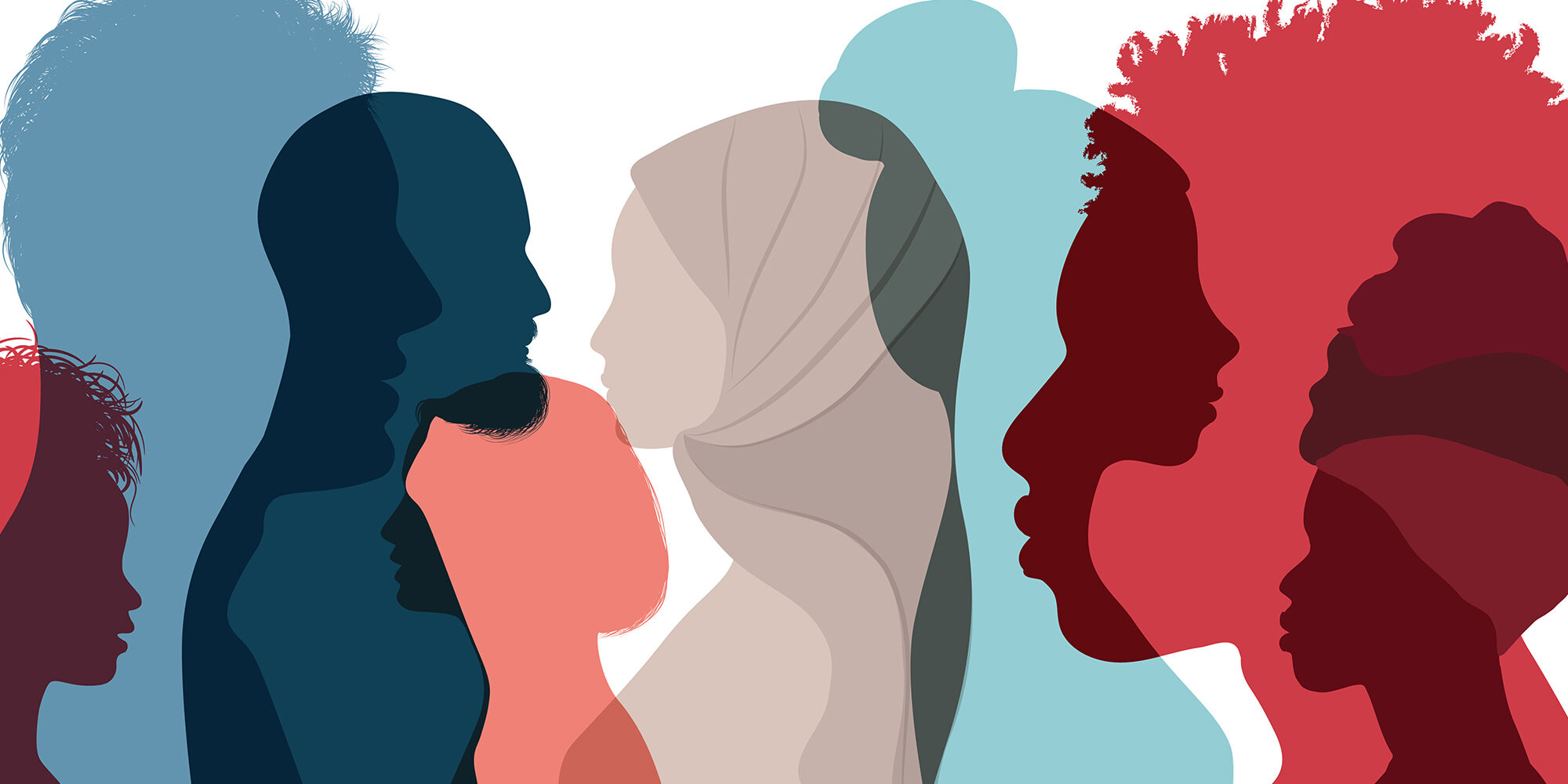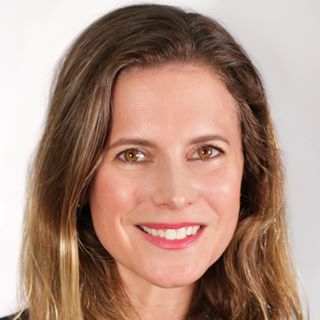
What Brand Founders Think Of Beauty Industry Usage Of The Term “Multicultural”
In this edition of Beauty Independent’s ongoing series posing questions to beauty entrepreneurs, we ask 16 founders and executives: What do you think of the term “multicultural” as it pertains to a beauty segment? Is there a term you prefer instead?
- YEWANDE MASI Founder, Ornami Skincare
In my opinion, the term multicultural within the beauty segment means having several distinct cultures present at the same time. Multicultural can seem very surface level, almost like checking a box and, at times, [it feels] like a brand is trying to be too many things rather than setting their own brand culture, which is inclusive of different types of people. I much prefer the term “inclusive” as it means creating an environment that is safe for all types of people and not just who they are culturally, but who they are as an entire individual with unique experiences.
- Jummie Ogunyemi Founder, Glammed Naturally Oil
As our society becomes more culturally diverse, it is quite amazing to be at the intersections of two very different yet equally beautiful and vibrant cultures. But, instead of multicultural, I would rather use the word “diversified.” Embracing your identity sculpts part of you from the day you were born because it is a characteristic that makes you a shade different from the rest. If you aren’t afraid to show some skin color, then maybe you’ll be able to see how beautiful that is to your identity, too.
- Caroline Levy CEO and Co-Founder, Zinda Beauty
Multicultural is an important concept for the beauty industry but, perhaps, is not quite broad enough. It is imperative that the beauty industry recognize the varying skincare needs of people from diverse ethnic backgrounds. Not all skin is created equally. And, more significantly, not all skin within one ethnic group is the same. One person may have oily skin while another may have dry skin. However, in order to be more fully inclusive, a beauty segment should speak to womxn across all cultural backgrounds, thus including people with varying gender identities.
- THAI-ANH HOANG Co-Founder and CEO, EmBeba
In my opinion, the term "multicultural" expands the concept of diversity and inclusivity, and that's a great thing. The U.S. is not homogeneous, and I think it's time to celebrate how many cultures exist in the U.S., along with race. My own family is a mix of races, religions and cultures. We are our own version of the United Nations. If brands use the term "multicultural," they have to demonstrate that in their mission, products, photography, etc. I prefer “fusion” or “melting pot,” but that might not market well.
- PURVISHA PATEL Dermatologist and Founder, Visha Skincare
It depends on what the beauty segment is about. Beauty indeed is different for different cultures as well as standards and practices. This term to me would mean that it is relevant with multiple cultures. A better word perhaps is “inclusive.” It seems to have a broader meaning, taking into account cultural differences.
- Shadora Martin Founder, Best Life Organics
I don’t think we need any descriptors at all if we’re trying to normalize diversity. So, let it be what it is. Your audience gets it and will see that it’s multicultural.
- ANDREW SOTOMAYOR Makeup Artist and Founder, Oracle Jayne Station
As a makeup artist, I like the term "multicultural" because it makes clear that who we are on the inside and what we look like on the outside is often the result of a global ancestry. It's fascinating to hear people talk about how they get their eye color from one parent or hair texture from another or facial features that they attribute to the country their grandparents came from.
Most people never assume that I'm Mexican-American or even Latino, often because of limited understanding of what we can look like, but I like that people like to discuss it in a positive way while they're in my chair. The beauty industry is still improving, but it has historically embraced diversity before fashion or politics have. My favorite client, Sasheer Zamata, did a comedy special called "Pizza Mind" where she offers that, instead of thinking of America as a cultural melting pot, let's think of it as a pizza, where each individual topping is visible, appreciated and making the whole thing better.
- Charnin Brown-Hayward Founder, Nail Wig Stroke Effects
When I think of the term "multicultural" as it pertains to the nail segment, I think of the importance of delivering colors and effects that can transcend across multiple skin tones as well as undertones. I personally prefer the term "multicultural" as it gives me a sense of comfortability that a brand is more diverse.
- Emily H. Rudman Founder, Emilie Heathe
I think this refers to more inclusive beauty, but it does have a slightly different connotation. I think this type of direction is super important and has always been inherent in our brand. Like any term that is overused, “inclusive” becoming one of them, it is good to have other words or ways of describing this type of beauty or brand ethos.
- Chelsi Oestreich Co-Founder And Chief Marketing Officer, Kinkō
I love that the beauty industry has finally embraced multiculturalism, but it goes beyond that. I prefer to focus on “individual beauty” because within each culture or race, we are each individuals who have our own needs that deserve to be met.
In an effort to come together, we have recently partnered with eight other women-owned brands, all from diverse backgrounds, to provide these individual needs in the form of a custom mailer. For us, it's about creating community and bringing one's own individualism with them.
- Ellen Rucker Sellers Co-Founder, Rucker Roots
Multicultural as it pertains to the beauty segment to us means “diversity” and “inclusion,” and the celebration of such. We think that it is a great term because it is inclusive of many different cultural backgrounds and races that make our world a better place. For many years, we as Black-owned brands have struggled to make major strides in the industry and to have the same and equal opportunities as white-owned brands. The ability to collaborate in the industry without having to sacrifice our identity, but instead celebrate it is essential to the success of Black-owned brands.
- Donagh Quigley Founder, The Handmade Soap Company
I definitely prefer the word “inclusive” as I think it captures a much broader range of the human experience. Here in Ireland, we might not be as multicultural as a country like Australia, but we absolutely have the same human rights issues such as gender equality, minority rights, poverty, mental health and multicultural issues. Specifically as it relates to the beauty industry, I would say it's very product-specific.
- Carolyn Aronson CEO and Founder, It’s A 10 Haircare
Fifteen years ago when I created [my brand], I made sure it was suited for all hair types, from the finest blonde hair to the curliest black hair. I find when you label something “multicultural,” it can pigeonhole your brand. We often see stores with a specific multicultural haircare aisle. However, I believe that there should be one aisle inclusive of all hair types. That’s the way It’s A 10 has been designed from day one. We don’t discriminate. We don’t divide. We unite because beauty comes in many forms.
- MK Menikheim Founder, The Well Organics
Aromatherapy, as a practice, has been used for centuries in cultures around the world. And we believe, as many other cultures do, that aromatherapy is beneficial for both the mind and body, regardless of gender, ethnicity, ability, sexual orientation or age.
In my mind, building an inclusive culture is instrumental in growing any organization. We, as business owners, need to honor multiculturalism and recognize, respect and celebrate our differences. The Well Organics grew out of a desire to experience blends of essential oils that did not yet exist in the beauty market. While individual essential oils are amazing on their own, we wondered, what could we create by blending botanical and floral essential oils? And how could these blends improve our everyday lives? We believe in the benefits of aromatherapy for all.
- SELMIN KARATAS Co-Founder and CEO, Kazani
According to Merriam Webster, the term “multicultural” is defined as relating to or including many different cultures. I use the term “gender-neutral” and “inclusive” as the products pertain to everyone.
- PAAYAL MAHAJAN Founder, Essential Body
Honestly, I feel as though I’m back in 2005. I was working at a major U.S. nonprofit and my title was manager, multicultural initiatives. 2020 is nearly over and the conversations have not changed. Not even slightly. In those days, when I trained staff and volunteers, one of the points I’d make was about the shifting demographic landscape of the U.S. In 2020, we are still having this conversation.
This planet is predominantly people of color and people of more cultures than we have even cared to count. To contextualize this, today, the world’s population stands at 7.8 billion people. As of 2019, the U.S. had 250 million people who identified as white. Just a little bit of perspective on numbers.
So, why is multicultural a segment and not the norm? Why are we still struggling to find a place for BIPOC, multicultural communities? I will not mince my words. America has a problem. Everything “exotic” sells. Except it’s not exotic. These are actual cultures, most significantly larger than the American understanding of global cultures. Look at the number of white-owned brands that have appropriated other cultures without context, respect or understanding simply to sell their wares.
Brands, celebrities and influencers did their perfunctory social media lip service after George Floyd’s murder. Some even got defensive about how “inclusive” they were. I will say it again and again. Brand values are in their DNA. You cannot feign multiculturalism or inclusivity. You cannot post a picture of a variance of colors and claim diversity.
So, in my humble opinion, it is about time “multicultural” became the norm and not just a market segment. Imagine the opposite. Two shelves in a Sephora labeled “white people” with products only for people who identified as white. “We’ll give you 2% of our shelf space in all of our stores. Consider it our commitment to inclusion.”
If you have a question you’d like Beauty Independent to ask beauty entrepreneurs, please send it to editor@beautyindependent.com.






Leave a Reply
You must be logged in to post a comment.